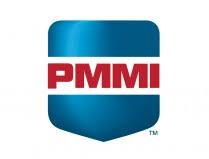FDA Bans Use of FD&C Red No. 3 in Foods
 The FDA is revoking the authorization for the use of FD&C Red No. 3 as a matter of law, based on the Delaney Clause of the Federal Food, Drug, and Cosmetic Act (FD&C Act). The FDA is amending its color additive regulations to no longer allow for the use of FD&C Red No. 3 in food and ingested drugs in response to a 2022 color additive petition.
The FDA is revoking the authorization for the use of FD&C Red No. 3 as a matter of law, based on the Delaney Clause of the Federal Food, Drug, and Cosmetic Act (FD&C Act). The FDA is amending its color additive regulations to no longer allow for the use of FD&C Red No. 3 in food and ingested drugs in response to a 2022 color additive petition.
The petition requested the agency review whether the Delaney Clause applied and cited, among other data and information, two studies that showed cancer in laboratory male rats exposed to high levels of FD&C Red No. 3 due to a rat specific hormonal mechanism. The way that FD&C Red No. 3 causes cancer in male rats does not occur in humans. Relevant exposure levels to FD&C Red No. 3 for humans are typically much lower than those that cause the effects shown in male rats. Studies in other animals and in humans did not show these effects; claims that the use of FD&C Red No. 3 in food and in ingested drugs puts people at risk are not supported by the available scientific information.
The Delaney Clause, enacted in 1960 as part of the Color Additives Amendment to the FD&C Act, prohibits FDA authorization of a food additive or color additive if it has been found to induce cancer in humans or animals. This is not the first time the agency revoked an authorization based on the Delaney Clause. For example, in 2018, the FDA revoked the authorization for certain synthetic flavors based on the Delaney Clause in response to a food additive petition.
FD&C Red No. 3 is a synthetic food dye that gives foods and drinks a bright, cherry-red color. The FDA estimates that the dye is not as widely used in food and drugs when compared to other certified colors based on information available in third-party food product labeling databases, food manufacturers’ websites and other public information, and the FDA’s certification data. FD&C Red No. 3 has been primarily used in certain food products, such as candy, cakes and cupcakes, cookies, frozen desserts, and frostings and icings, as well as certain ingested drugs.
Manufacturers who use the dye in food and ingested drugs will have until Jan. 15, 2027 or Jan. 18, 2028, respectively, to reformulate their products. Other countries still currently allow for certain uses of FD&C Red No. 3 (called erythrosine in other countries). However, foods imported to the U.S. must comply with U.S. requirements.
For more news of interest to the specialty food industry, subscribe to Gourmet News.
California Table Grape Commission Adds to Marketing Team
The California Table Grape Commission welcomes Lisa Massie and Alexandra Merritt to the marketing team.
 As the director of international marketing for Asia, Massie will lead the marketing work in targeted export markets throughout Asia, focusing on building demand for California table grapes through the work of multiple in-country promotion teams. Massie served as the Global Marketing and Communications Specialist at Trillium Flow Technologies and brings a background in account management, business analysis, communications, and export promotion with her to the commission.
As the director of international marketing for Asia, Massie will lead the marketing work in targeted export markets throughout Asia, focusing on building demand for California table grapes through the work of multiple in-country promotion teams. Massie served as the Global Marketing and Communications Specialist at Trillium Flow Technologies and brings a background in account management, business analysis, communications, and export promotion with her to the commission.
 As director of global marketing, Merritt will manage retail accounts in the U.S. and will lead the marketing work in the key export markets of Canada, Australia, and New Zealand. Additionally, Merritt will be responsible for directing category management research. Merritt joins the commission from Root Creative Marketing where she served as Account Director and was responsible for implementing marketing campaigns for a diverse set of agriculture, food product, and lifestyle product clients.
As director of global marketing, Merritt will manage retail accounts in the U.S. and will lead the marketing work in the key export markets of Canada, Australia, and New Zealand. Additionally, Merritt will be responsible for directing category management research. Merritt joins the commission from Root Creative Marketing where she served as Account Director and was responsible for implementing marketing campaigns for a diverse set of agriculture, food product, and lifestyle product clients.
“Both Lisa and Alexandra bring talent, drive, heart, and extensive backgrounds in account management and analysis to the commission marketing team,” said Ian LeMay, incoming California Table Grape Commission president.
“We are very pleased to welcome them to the team and look forward to the many contributions they will each make in the years to come,” said LeMay.
For news of interest to the produce industry, subscribe to Gourmet News.
PMMI Donates $200K to Red Cross For LA Fires
 PMMI, The Association for Packaging and Processing Technologies, announced that the board of directors has approved a $200,000 donation to the American Red Cross to assist with wildfire relief efforts in southern California. This contribution aims to provide critical aid to communities devastated by the recent wildfires.
PMMI, The Association for Packaging and Processing Technologies, announced that the board of directors has approved a $200,000 donation to the American Red Cross to assist with wildfire relief efforts in southern California. This contribution aims to provide critical aid to communities devastated by the recent wildfires.
Southern California has been severely affected by these wildfires, displacing thousands of residents and causing significant damage to homes and businesses. PMMI, with a strong membership presence in the hardest-hit areas, recognizes the immense challenges faced by these communities.
“Our hearts go out to everyone affected by these fires. PMMI wanted to make a meaningful contribution to support those impacted, especially our members in southern California,” says Jim Pittas, president and CEO, PMMI. “Thanks to our strong financial position, bolstered by the success of our PACK EXPO portfolio of trade shows, the Board recognizes we can provide substantial support at this critical time.”
The donation will be directed toward the American Red Cross disaster relief fund, helping to provide essentials such as shelter, food, medical aid, and support services to those in need.
“Many of our member companies and their employees are deeply impacted by this tragedy. As part of the PMMI family, we stand by them during this incredibly difficult time,” adds Pittas. “We encourage anyone who can contribute to this relief effort to do so.”
PMMI’s commitment goes beyond financial aid. The association is actively working to support its members as they navigate the aftermath of these wildfires, ensuring they have the resources and assistance needed to recover and rebuild.
You can make a difference by donating to the American Red Cross disaster relief fund. Every contribution helps bring hope and aid to those affected by disasters like these wildfires.
Visit the American Red Cross website to make a difference today.
For more news of interest to the food and beverage industry, subscribe to Gourmet News.








